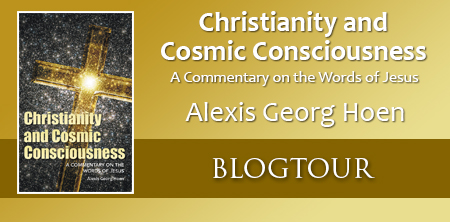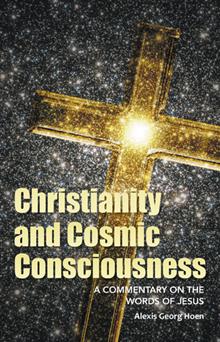Title: Christianity and Cosmic Consciousness
Author: Alexis Georg Hoen
Publisher: iUniverse
Genre: Religion
Format: Ebook
Born in the Ukraine, educated in Munich, and having practiced medicine in the United States, author Alexis Georg Hoen has been exposed to widely differing political systems and religious beliefs, and he has always maintained an interest as to the origin of these beliefs and their relation to the innermost nature of man. In Christianity and Cosmic Consciousness, he interprets the words and the sacrifice of Jesus as pointing the way toward a realization of our innermost nature—the will to live and love that exists within all.
Sharing his experiences and ideas about Christ’s words and sacrifice, Hoen uses personal anecdotes and biblical examples to illustrate the nature of Christian belief. He provides a host of examples, including key illustrations from the Bible and relevant source material from other writers who address this topic. He shows us that through sacrifice we live in and for others. That is eternal life.
Christianity and Cosmic Consciousness represents the core of Christian teaching without resorting to the supernatural and miraculous, yet doesn’t try to disprove it.
THE CURSED FIG TREEA puzzling story is related in the Gospel of Mark 11:12-14, continued in the verses 20-24, and in the Gospel of Matthew 21:18-22. Jesus is hungryand encounters a fig tree that has no fruit because, according to Mark, it is not time for it. He curses the tree and it withers. When the disciplesmarvel at the effect of Jesus's curse, he reminds them that prayer - in this case represented by his curse - can move mountains, that mind can controlmatter. But the mind in this case is vindictive, not appropriate for a divine person. The Church, of course would have us believe that Jesus wassubject to human emotions and temptations, yet he never sinned, so that he should never have given way to a hateful urge.
The "New American Bible" and the "New Catholic Commentary on theHoly Scripture" interpret the fig tree in the story as a symbol for Israel disappointing God by its lack of fruitfulness and there are indeed numerousbiblical examples for such symbolism. But there is, at least in Mark's account, the statement that the tree was not to be expected to bear fruit thattime of year, and even if Jesus hungers for Israel's producing fruit, an irreversible destruction of it in anger seems unreasonable and not consistentwith the forgiving nature of Jesus's God.
Bertrand Russell quotes that story as one keeping him from believing in Jesus as a divine figure although he apparently admires him as an individual. A Non-Christian might agree with Russell that Jesus is but a human being, subject to fits of anger who just happens to be in a bad mood.The story in both Gospels quoted is closely associated with Jesus angrily driving out the traders from the Temple, in Matthew that event immediatelyprecedes the cursing of the fig tree, in Mark the Temple episode is sandwiched in between the cursing of the tree and the discovery that it hadwithered. Perhaps Jesus was irritable because he did not have enough to eat and because he was worried about the fate that expected him in thenear future.
If, on the other hand, we firmly believe in the divinity of Jesus, we might consider his action as impossible to understand as God's decrees are. The belief in predestination, still held by some, is an example of the apparent unreasonableness and inscrutability of God's decrees. There is a biblical quote that, I believe, can be more appropriately pared with the Gospel story we are considering than those statements quoted by the "New American Bible" and the "Catholic Commentary" It is taken from Ezekiel17:24 and it reads: "...1, the Lord, ...wither the green tree and make the withered tree bloom." Jesus may have acted inscrutably as God by"withering the green tree."
But, aside from any considerations of the human frailty or divinity of Jesus we may find an important symbolic meaning in that story. The tree is made to wither because it does not exceed reasonable expectations. Does that lesson not apply to our lives? A soldier becomes a hero if he does something beyond the call of duty. A worker is promoted when heperforms in excess of normal expectations. Whenever we accept the status quo, we stagnate and wither. In the1960 some people left their secure environment and risked their lives by opposing bigots and trying to obtain equal rights for blacks. They certainly could not be expected to do that. Some were killed, but they are forever remembered, whereas their inert contemporaries will be forgotten one by one. Jesus himself did not continue a peaceful existence as a carpenter but freely agreed to become a "spotless victim."
He was therefore "brought to life in spirit" (!Peter 3:18). No innovator conforms to expectations of his or her society. We all need to try to break out ofour shells because that is dictated by our innermost divine creative nature that is dried up by inertia and conformism. That is the meaning we canderive from the withering of the poor, correctly behaving, tree.
Alexis Georg Hoen attended medical school in Munich. He immigrated to the United States at age twenty-five, and he practiced medicine in Los Angeles for fifty years. In addition to the study of religion, he enjoys gardening and spending time with his three children and six grandchildren.



No comments:
Post a Comment